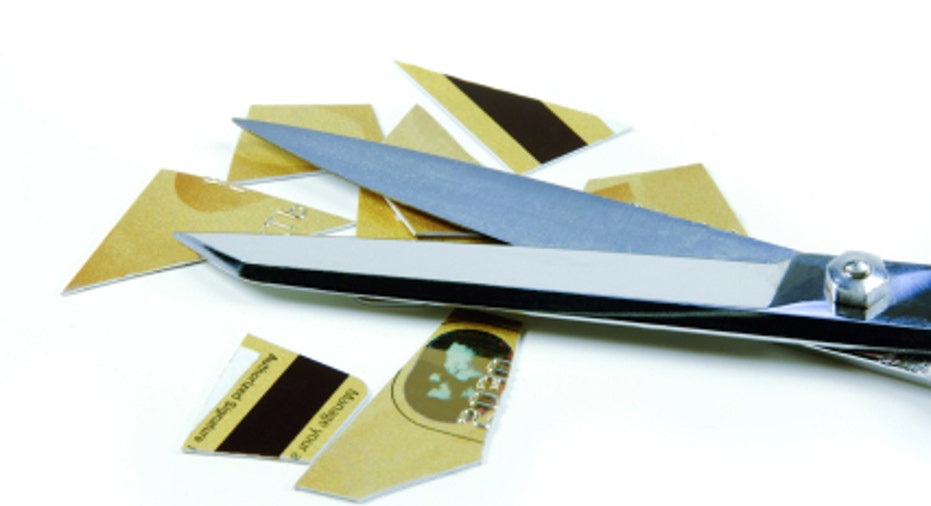How Do I Pay My $80,000 Credit Card Bill?

Dear Debt Adviser,
I am considering refinancing my mortgage. My plan is to take cash out in order to pay off my credit card debt. I owe $80,000 on credit cards, which is actually more than the $63,000 I owe on the house. Would this be a well-advised move, in your opinion? I can very easily handle the new monthly payment. With the savings from not making credit card payments I can make additional payments on the mortgage principal. My current mortgage has 11 years remaining, and the new mortgage would be for 15 years. So in other words, I'd be paying my house off in about the same time frame, anyway. I appreciate your advice.
-- Robert
Dear Robert,
Before I answer your question, I must make a comment: $80,000 on your credit cards?!
Because I am the Debt Adviser, I can't help but address your $80,000 in credit card debt first. That is a huge amount of debt. Before you do anything, I want you to seriously analyze how you acquired so much debt. Before doing anything, you must be very sure that you can live day to day without racking up another $80,000 in new debt after any refinancing.
Now, let's address your main concerns. First, remember that the refinancing will not really pay off anything. It will just move your debt around. Furthermore, it could end up hurting you ultimately. That's because your $80,000 in credit card bills will be converted from an unsecured debt to a mortgage secured by your home. That's why I'm so concerned that you change your spending habits first. Otherwise, you are quite likely to end up in the same debt situation in the very near future -- but ownership of your home would be at stake.
So with your promise that you will develop a workable spending plan to keep your expenses in line with your income and stop using credit cards to carry debt over from month to month, let's talk about your refinancing options.
Let's say you decide to do a traditional 15-year fixed-rate refinance of your existing mortgage with a cash-out option to pay off the $80,000 credit card debt. If so, I would encourage you to organize your budget so you can repay the loan in five to seven years.
As an alternative, depending on the current rate of interest on your existing mortgage loan, you might consider using a home equity line of credit, or HELOC, instead of obtaining a new, larger first mortgage. The HELOC interest rate would likely be lower. You should be able to pay off the debt in a shorter period of time. That would save you on interest payments. It will also reduce the time period where you'll be most at risk to financial surprises like illness or a layoff. My experience is that as soon as you make yourself vulnerable to a problem, it shows up.
A traditional refinance may be the best option if your goals are to: first, get a lower rate on your primary mortgage, and second, pay off the credit cards. However, if you already have a fairly low interest rate on your mortgage, a HELOC might be the better option.
I want you to lose your debt, not your home. So here's an added note of caution: You are taking on added risk with either a HELOC or a mortgage. You are moving a rather large debt from unsecured terms -- credit card accounts -- to a secured loan using your home as collateral. If for any reason you default on your new loan, your home is at jeopardy. I've seen enough unexpected things happen to otherwise smart people because they took on a risk they didn't understand.
There is also a tax risk. If the unthinkable should happen and you go into foreclosure, the $80,000 used to pay off your credit cards would not qualify for debt forgiveness under the Mortgage Forgiveness Debt Relief Act. The result: You would owe income taxes on the $80,000 when you can least afford it.
Ask the adviserTo ask a question of the Debt Adviser, go to the "Ask the Experts" page and select "Debt" as the topic. Read more Debt Adviser columns and more stories about debt management. Bankrate's content, including the guidance of its advice-and-expert columns and this website, is intended only to assist you with financial decisions. The content is broad in scope and does not consider your personal financial situation. Bankrate recommends that you seek the advice of advisers who are fully aware of your individual circumstances before making any final decisions or implementing any financial strategy. Please remember that your use of this website is governed by Bankrate's Terms of Use.



















